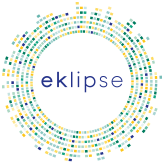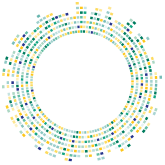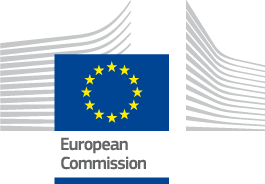Request > Macroalgae cultivation and ecosystem services
What is the state of knowledge regarding the potential of macroalgae culture in providing climate-related and other ecosystem services, focusing on knowledge gaps?
Requester: DG Maritime Affairs & Fisheries, Unit for Maritime Innovation, Marine Knowledge and Investment.
Summary
Type of request: Knowledge Synthesis
This request aims to explore and map existing knowledge and identify knowledge gaps and trade-offs, to inform future development of macroalgae culture strategies and policies. Furthermore, more knowledge is needed to evaluate impacts in terms of water, energy and land use, changes in sedimentation rates and structure of local communities, and potential pollution and risk of releasing invasive species into the environment and can contribute to the development, promotion and implementation of adequate and timely policy frameworks.
Reference: Request CfR.5/2020/1
Expert Working Group
- Rui Pereira (A4F, Algae for Future, Portugal) (co-chair)
- Sander van den Burg (Wageningen Research, Netherlands) (co-chair)
- Ricardo Bermejo (University of Cádiz, Spain)
- Alejandro Buschmann (University of Los Lagos, Chile)
- Elisa Capuzzo (Centre for Environment, Fisheries and Aquaculture Science (Cefas), UK)
- Elizabeth Cottier-Cook (Scottish Association for Marine Science, UK)
- Anna Fricke (Leibniz Institute of Vegetable and Ornamental Crops (IGZ), Germany)
- Ignacio Hernández (University of Cadiz, Spain)
- Laurie Hofmann (Alfred Wegener Institute , Germany)
Contributors
- Vincent Doumeizel (United Nations Global Compact / Lloyd’s Register Foundation, France)
- Olavur Gregersen (Ocean Rainforest, Faroe Islands)
- Claire Hellio ( University of Western Brittany, Institut Universitaire Européen de la Mer, Biodimar, France)
- Michele Stanley (Scottish Association for Marine Science, UK)
Contact points
- KCB Focal Point: Ana Lillebø and Simo Sarkki
- EMB Contact Point: Tânia Pereira and Marie Vandewalle
Press releases
- 06.2022: “Aktuelles: stand des Wissens über das Potenzial des Makroalgenanbaus für die Bereitstellung von klimarelevanten und anderen Ökosystemdienstleistungen“, website Leibniz-Institut für Gemüse- und Zierpflanzenbau (IGZ)
- 06.2022: “News: f4f-Algenexpertin Dr. A. Fricke an Erstellung des Wissensstandsberichts beteiligt”, website Food4future
The issues related to macroalgae aquaculture touch upon different aspects of the Green Deal initiative:
a) Increasing EU’s climate ambition for 2050 (low emission food and feed production
b) the Farm to Fork strategy (through sustainable protein production)
c) the Zero pollution ambition (through the removal of nutrients and possibly other dangerous substances)
d) Preserving and restoring ecosystems and biodiversity (by enhancing the local biodiversity, but also through protection functions)
e) Supplying clean and possible affordable energy (through the production of biofuels).
Taking into consideration the variant areas where macroalgae culture can contribute in the Green Deal, but also the importance of the overall algae sector for the development of a sustainable European Blue Bio-economy, DG MARE is contemplating the development of an EU Algae Strategy. The results of the knowledge assessment will be used in the development of this strategy. Additionally, the identification of possible knowledge gaps or knowledge needs related to the subject will advise, through MARE, the development of relevant research activities under the next EMFF and Horizon Europe programs. The main policy context of this request is the European Green Deal.
Timeline
- Date request received: Apr 2020
- Call for Knowledge (CfK): Sep 2020 to Nov 6th 2020
- Call for Experts: Dec 9th 2020 to Jan 8th 2021
- Experts selection: Feb 12th 2021
- Experts Working Group kick-off meeting: Feb 22nd 2021
- First meeting with the requesters and Eklipse KCB and methods experts: Feb 22nd 2021
- First Version of the method protocol: Jun 15th 2021
- Open review of the method protocol: Jun 21st to July 2nd 2021
- Method protocol – Final version: Aug 10th 2021
- Presentation of Initial findings by EWG to DG-Mare: Dec 14th 2021
- Finalisation: May 2022
Scoping phase
The Document of Work (DoW) described the results of the scoping activities as well as the background of the request and was the basis for the call for experts.
Answering the request
Selection of an Experts Working Group (see above)
To answer this request, Eklipse sent out a Call for Expertise (CfE) and received 29 applications, from which 14 experts were selected in February 2021. These experts covered a broad range of expertise, gender and geographical representation to form the Eklipse Expert Working Group (EWG). One expert dropped out in the beginning due to unavailability. The EWG was asked if they wanted a replacement, but it was decided not to.
The next step was for the Expert Working Group to develop a methodological protocol based on the Document of Work (DoW), including the scientific aspect of a thorough literature search and possible appraisal. The methods protocol was open for public review until July 1st 2021.
Scoping phase
Initially, the requester suggested providing the current knowledge of green spaces’ effects on mental health and physical health. Based on the discussion results between the KCB, the requesters, and the Call for Knowledge (CfK) carried out on April-May 2017. It was agreed to refine the request question to target mental health and psychological well-being and omit physical health (unless linked to mental health in existing research). Psychological disorders were also included in the request’s scope, but indoor greenness (houses, workplaces) would not be considered. The requester has a specific interest in positive impacts to generate recommendations for designing and managing green and blue spaces in cities or nearby neighbourhoods and initially required a systematic review approach.
The CfK specifically resulted in the identification of 6 reviews, 18 articles and about 30 other references provided by experts through the KNOCK Forum. Based on the scoping process and the Call for Knowledge, a Document of Work (DoW) was compiled.
Answering the request
Selection of an Expert Working Group (see above)
To answer this request, Eklipse sent out a Call for Expertise (CfE) and selected 11 experts in November 2017. These experts covered a broad range of expertise, gender and geographical representation to form the Eklipse Expert Working Group (EWG).
The next step was for the Expert Working Group to develop a methodological protocol based on the DoW, including the scientific aspect of a thorough literature search and possible appraisal. From the identified methods, the expert working group decided on performing a systematic review that will follow the following steps:
1) Eligibility criteria for the articles will be formulated
2) A systematic search strategy will be employed to yield relevant articles
3) Meta-data will be extracted and coded for each eligible study
4) Each study will be critically appraised
5) A narrative and descriptive synthesis will be performed
6) Outcomes of the synthesis will be discussed
Methods Protocol
During the scoping process, the Eklipse Methods Expert Group (MEG) and Knowledge Coordination Body (KCB) Macroalgae group discussed potential knowledge synthesis methods, which can be applied for this request. Building on the discussions and materials prepared by the MEG, the following methods were suggested for the different steps of the request:
- Quick Scoping Review (QSR)
- Multiple Expert Consultation with Delphi Process.
These methods were conducted in parallel, rather than sequentially. A first round of questions was sent to selected experts as part of the Delphi Process, and then the Expert Working Group proceeded with the QSR. The use of the two methods helped providing a more comprehensive answer to the request than the use of a single one. QSR focuses on peer–reviewed literature, and the Delphi method captures the most recent and up–to–date views of experts from key sectors, including science, business and NGOs. Therefore, while QSR provides a robust view on published literature and evidence, Delphi covers views of not only scientists, but also other societal actors with practical and experience–based knowledge on the key issues in macroalgae cultivation. More information can be found on the final Methods Protocol (see above).
Finalisation




